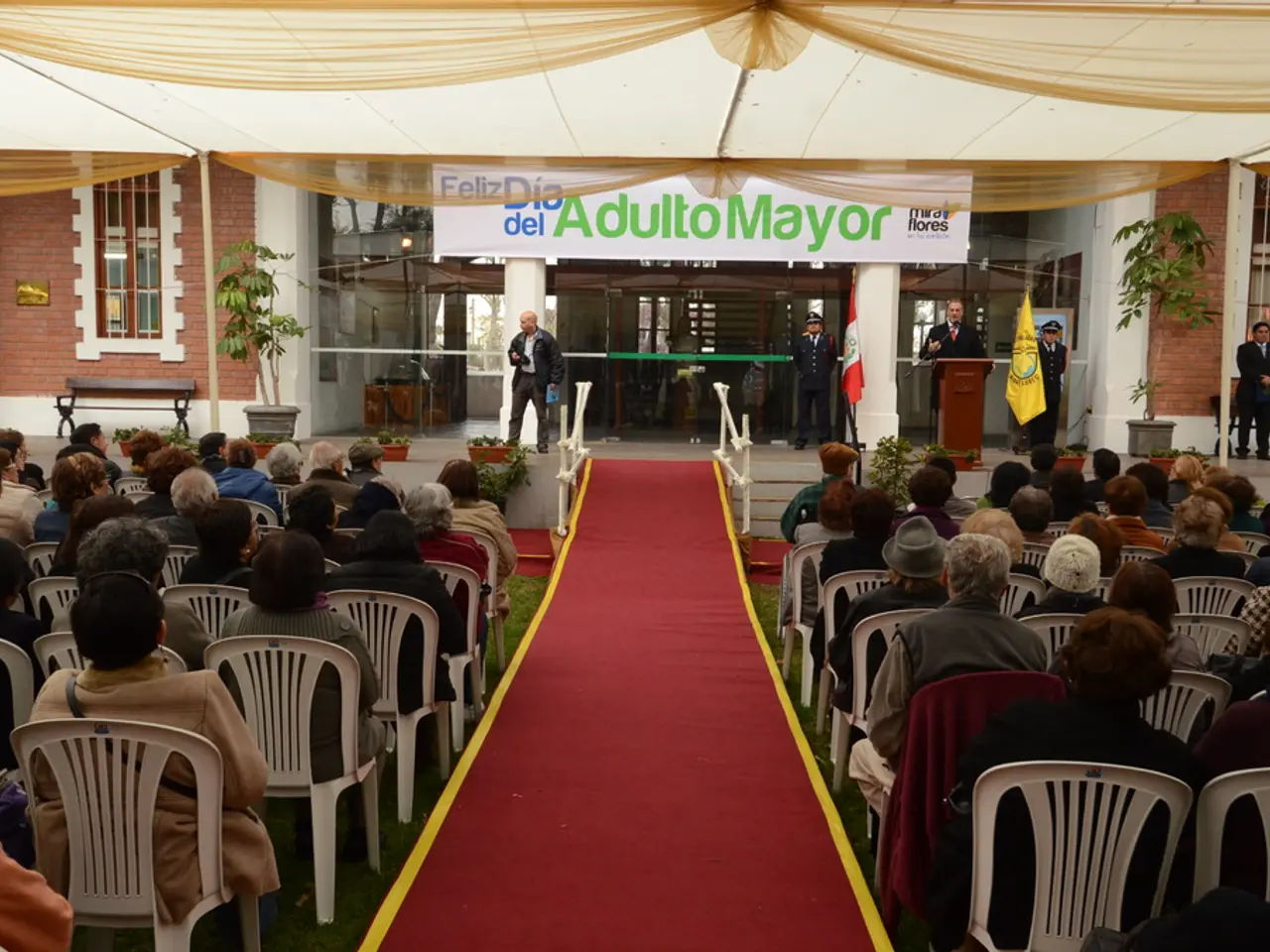Luxury sales worldwide will mildly decelerate rather than crumble in 2025 due to tariff disputes and conflicts, according to a recent study.
Luxury Sales Slump, But It's Not All Doom and Gloom
News flash: Global sales of your high-end accessories and trinkets are hitting a rough patch, according to a report by Bain & Company released this week. The personal luxury goods market, which dropped to a whopping 364 billion euros ($419 billion) in 2024, is set to take a tumble of another 2% to 5% this year, the study warned.
The report attributes this slippery slope to a looming economic slowdown triggered by geopolitical tension and the potential US tariffs on these luxury items. Bain partner, Claudia D'Arpizio, put it bluntly, "Even with three wars, economies slowing down, and inequality at an all-time high, it's still not a market in collapse." It's just a little, well, collapsed-ish.
Consumers have started to distance themselves from luxury brands, which have been struggling with a creativity crisis and jacking up prices that even a 1% inflation rate can't justify. To add insult to injury, recent investigations in Italy unearthed some sweatshop conditions in subcontractors responsible for producing luxury handbags.
The US and China, traditional powerhouses of this market, are experiencing significant sales slumps. The volatile market conditions in the US due to tariffs and China's six-quarter contraction due to low consumer confidence aren't helping matters.
On the bright side, the Middle East, Latin America, and Southeast Asia are seeing growth, with Europe remaining mostly flat. This dichotomy has led to a stark contrast between strong-performing brands like the Prada Group, recording a 13% increase in first-quarter revenue to €1.34 billion, and less fortunate brands like Gucci, which saw revenue dip by 24% to €1.6 billion in the same period.
In an attempt to swiftly turn things around, Gucci owner Kering has hired Luca De Meo, a former CEO of Renault, to head their revamp. With three of its brands – Gucci, Balenciaga, and Bottega Veneta – set to welcome new creative directors, it seems Kering is leaving no stone unturned in its quest for a comeback.
Brands are also making adjustments to minimize the impact of potential US tariffs, at least in terms of inventory. Expect to see more direct shipping from production sites instead of warehouses, and stores with leaner stock. After all, with all these aesthetic changes afoot, "stuffing the channels doesn't make a lot of sense," according to D'Arpizio.
Despite the optimistic moves from brands, the challenges facing the luxury market are far from over. Economic headwinds, the impact of US tariffs, and shifting consumer behavior are out of companies' control. Bain's D'Arpizio remained hopeful, stating, "Many of these negative aspects are not going to change soon, but with more transparency on tariffs, we can at least have a clearer picture."
Altagamma, the Italian luxury brand association, emphasized that despite these struggles, the sector recorded overall growth of 28% from 2019 to 2024, putting it well above pre-pandemic levels. And as history has shown us, luxury spending isn't one to wallow in a crisis for long. After all, who can resist a spend-splurge when there's pent-up demand and new markets waiting to be conquered?
Bonus Insights:- The Bain & Company study suggests that the luxury market faced its first contraction in 15 years (excluding the pandemic period) in 2022, with sales dipping from €369 billion in 2023 to €364 billion in 2024.- The report projects that the luxury industry will continue to face difficulties in 2025, with a possible decline of up to 5%, depending on the scenario. The industry is also grappling with shifting consumer behavior and economic headwinds impacting demand.
In light of the economic challenges, politicians in Toronto are expressing concern about the potential impact of tariffs on luxury goods, which could further exacerbate the slump in sales, as reported by Bain & Company.
Meanwhile, the ongoing investigations in Italy revealing unsavory working conditions in luxury handbag production subcontractors have shed light on the political and ethical aspects of the luxury goods industry, stirring discussions in Toronto's news circles.





